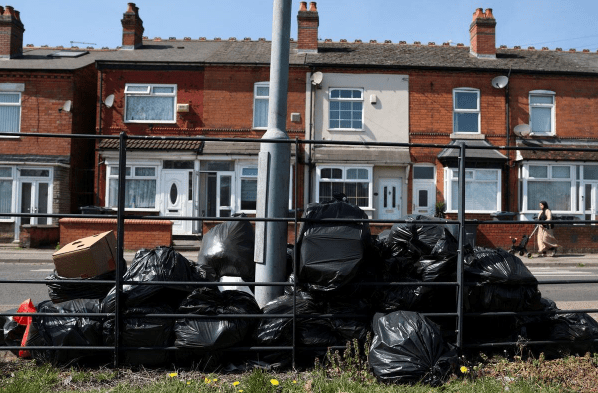After weeks of mounting waste and frustration, fresh talks between Birmingham City Council and Unite Union Officials are set to resume this Wednesday. The development marks a critical juncture in what has become a protracted and increasingly tense dispute over pay and job security.
For residents of the UK’s second-largest city, who have endured over a month of missed collections and overflowing bins, the renewed discussions offer a glimmer of optimism.
Although initial hopes for Easter negotiations fell flat, recent efforts have seen some progress in clearing the refuse backlog. Still, the strike’s disruption remains visible across Birmingham.
The city council, under mounting pressure from the public and central government, has redoubled its focus on restoring basic services. Communities Minister Jim McMahon confirmed that over 26,000 tonnes of waste have been cleared in the past fortnight alone.
“We’ve been providing intensive support to the council in its efforts to address the backlog of waste that has been building up on the city’s streets, and significant progress has been made in the last fortnight,” McMahon told Parliament.
He also confirmed that regular bin collections have resumed, signalling a return to some normality for Birmingham households.
Despite signs of progress, tensions continue to simmer. McMahon has publicly urged Unite to end industrial action and accept what he described as a “fair deal” currently on the table.
“Regular bin collections have resumed,” he said, “and we are calling on Unite to do the right thing and accept the deal that has been offered.”
The military has reportedly been on standby to advise on logistics, though the minister has been pressured by Conservative MPs to ensure armed forces personnel are not used to collect rubbish, something they labelled a “humiliation.”
The ongoing strike has sparked political fallout in Westminster. Shadow Communities Secretary Kevin Hollinrake launched a scathing attack on Deputy Prime Minister Angela Rayner, accusing her of failing to challenge union actions and protect Birmingham residents.
“Failing to protect the reputation of our nation and now resorting to being bailed out by our brave armed forces,” Hollinrake said, calling the situation a “national embarrassment.”
He warned that the government’s handling could lead to a return to the chaos of the 1970s Winter of Discontent, referencing the infamous wave of strikes during that decade.
All eyes now turn to the midweek meeting, where both sides are expected to revisit negotiations in the hope of finding common ground. Whether a breakthrough will be reached remains uncertain.
For many in Birmingham, the outcome cannot come soon enough. With public patience wearing thin, the city’s leaders are under growing pressure to end the disruption and restore full services.
The Birmingham bin strike, now stretching into its second month, has tested both the city’s resilience and the government’s response.
As bins overflow and political blame flies, Wednesday’s talks present perhaps the best chance yet to resolve the standoff. But until a deal is signed, Birmingham residents will continue to wait and watch for the rubbish to stop piling up.






